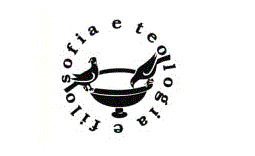


L’attenzione costante di Rilke per la tradizione religiosa emerge continuamente nella sua opera, dalla lirica, alla prosa, alle lettere, in cui sono contenute testimonianze relative alle storie dei santi, alle feste religiose, a chiese e cimiteri. Le chiese sono vuote, le cappelle in rovina, ma proprio in quel loro silenzio è possibile ascoltare la «ununterbrochene Nachricht», il «messaggio ininterrotto» che Rilke raccoglie nella sua poesia. Accanto all’attenzione per la manifestazione esteriore della sfera religiosa, agisce in Rilke soprattutto la testimonianza di una ricerca attenta allo spazio interiore. A partire dal rapporto controverso con Stefan George — l’esempio più significativo di un ritualismo estetico-letterario — l’articolo si concentra sul significato del rapporto, difficile e intenso, di Rilke con il Cristianesimo, all’interno del quale si colloca significativamente l’interesse per Sant’Agostino, cui è dedicata particolare attenzione. Alcuni aspetti della tradizione ritualistica sono osservati nel contesto della stringente ricerca di autenticità riconoscibile nella poesia di Rilke.
Parole chiave: Stefan George, liturgia, Rilke, lirica, lettere, prosa, Sant’Agostino, cerimonia, tempo, Chiesa
Rilke's constant attention to religious tradition emerges continuously in his work, from lyrics, to prose, to letters, which contain testimonies relating to the stories of saints, religious celebrations, churches and cemeteries. The churches are empty, the chapels in ruins, but it is precisely in their silence that it is possible to listen to the "ununterbrochene Nachricht", the "uninterrupted message" that Rilke preserves in his poetry. Alongside the attention to the external manifestation of the religious sphere, in Rilke there is above all the testimony of a careful research into the inner space. Starting from the controversial relationship with Stefan George - the most significant example of an aesthetic-literary ritualism - the article focuses on the meaning of Rilke's difficult and intense relationship with Christianity, within which the interest in Saint Augustine, to whom particular attention is dedicated, is significantly placed. Some aspects of the ritualistic tradition are observed in the context of the stringent search for authenticity recognizable in Rilke's poetry.
Keywords: Stefan George, Liturgy, Rilke, Poetry, Letters, Prose, Ceremony, Time, Augustine, Church